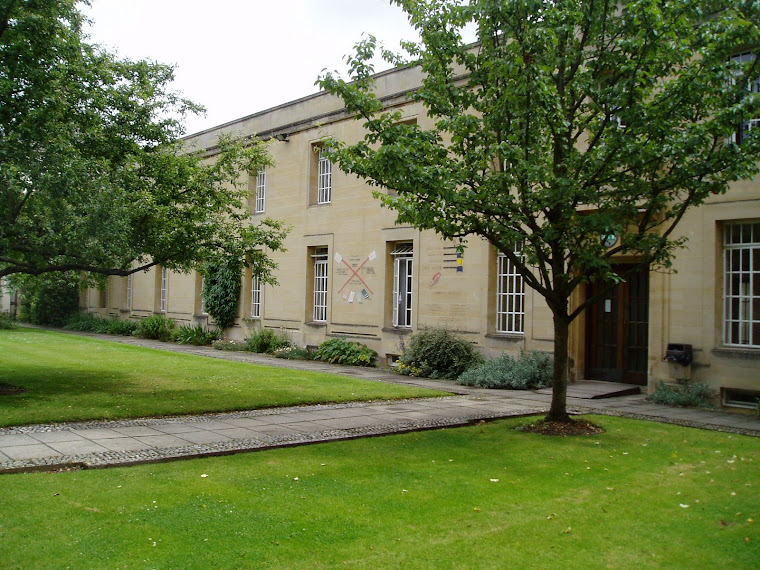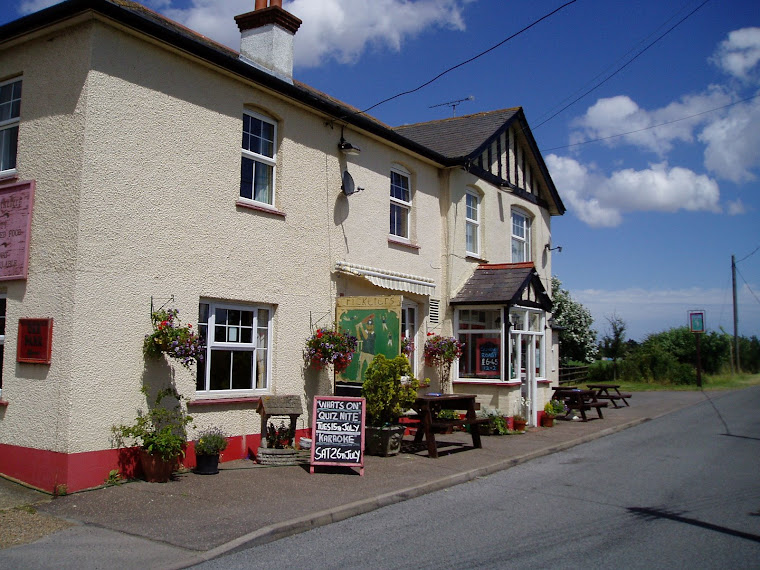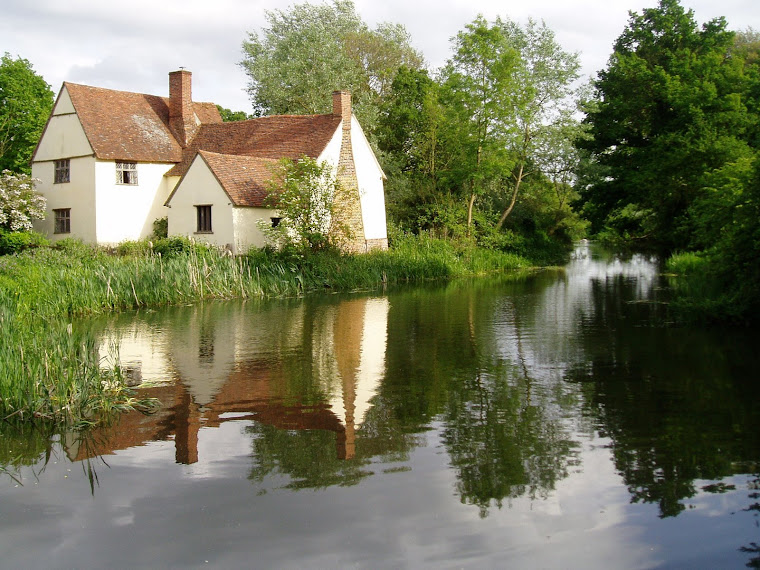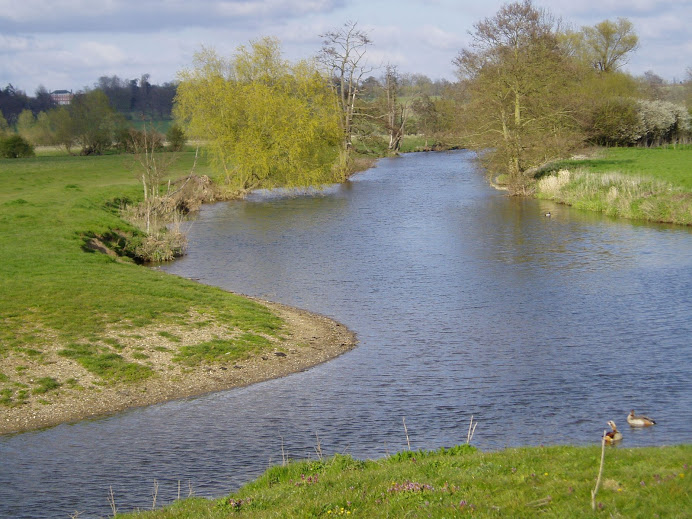When I came to live in Hornchurch, Essex, in the London Borough of Havering, in 1975, Brethren assemblies and the Brethren movement were influential and numerically strong. They had large Sunday Schools, well attended meetings, morning and evening services, very active preachers, high profile Christian leaders and wealthy supporters.
Today in 2015, there is only one Open Brethren assembly, chapel or fellowship in existence in Havering. It is the Collier Row Gospel Hall. I believe there are a few Exclusive Brethren people who meet in the Romford area, but as far as the Open Brethren are concerned there is just one active Open Brethren place of worship and witness in this Borough. There is not one in the Hornchurch area, where they once thrived.
I remember Brethren assemblies at Rise Park, Cranham, Craigdale Hall, Upminster, Ingrebourne Chapel, Bethany Chapel near Abbs Cross, and Emerson Park. The latter, which once thrived, seemed to me like the flagship, and it lasted the longest. The premises are now used by a charity (Stand By Me) and I understand that the trustees are looking for a Christian fellowship to use the building for worship, witness and fellowship. Its future is therefore uncertain.
I wish to look at the causes for the decline and demise of this once powerful and influential Christian movement in Havering. I believe that there are important lessons to be learned from this situation, lessons from history, from experience, from the wisdom of Christians involved in this decline and demise over forty years, and from the Lord Himself.
If you were involved in the Brethren or have any observations, comments or contributions then I would love to hear from you. This is, therefore, a work in process.
I intend to interview a number of people. In fact, I have already received helpful advice and details from people who attended Brethren meetings and were actively involved.
Today in 2015, there is only one Open Brethren assembly, chapel or fellowship in existence in Havering. It is the Collier Row Gospel Hall. I believe there are a few Exclusive Brethren people who meet in the Romford area, but as far as the Open Brethren are concerned there is just one active Open Brethren place of worship and witness in this Borough. There is not one in the Hornchurch area, where they once thrived.
I remember Brethren assemblies at Rise Park, Cranham, Craigdale Hall, Upminster, Ingrebourne Chapel, Bethany Chapel near Abbs Cross, and Emerson Park. The latter, which once thrived, seemed to me like the flagship, and it lasted the longest. The premises are now used by a charity (Stand By Me) and I understand that the trustees are looking for a Christian fellowship to use the building for worship, witness and fellowship. Its future is therefore uncertain.
I wish to look at the causes for the decline and demise of this once powerful and influential Christian movement in Havering. I believe that there are important lessons to be learned from this situation, lessons from history, from experience, from the wisdom of Christians involved in this decline and demise over forty years, and from the Lord Himself.
If you were involved in the Brethren or have any observations, comments or contributions then I would love to hear from you. This is, therefore, a work in process.
I intend to interview a number of people. In fact, I have already received helpful advice and details from people who attended Brethren meetings and were actively involved.


































































































































22 comments:
As a child I went to a Brethren Sunday School for a time, and I have a great deal of admiration for their knowledge of the Bible. I am therefore hesitant to criticise them.
However, in trying to find reasons why they may have declined so much over the past few decades I offer the following thoughts.
Churches die because they have not been able to attract new members. Were the Brethren so 'separated from the world' in a legalistic sense (no smoking, no drinking, no dancing, no going to the sin-ema) that they lost their appeal to outsiders?
Were they too white anglo-saxon protestant middle class, especially for the Havering area?
I will be interested to hear what you can glean from your interviews.
John
Thanks for you comment John. Somehow the Brethren in the Hornchurch area lost the means of reproduction. They sadly failed to win the next generation. My wife, who grew up in the Brethren, believes that a contributory factor was their attitude to women. In today's society women are now holding positions of influence and authority; they can be better educated and more able than their husbands. In some Brethren assemblies the women significantly outnumbered the men. Their daughters voted with their feet and joined churches where they could use their talents much more productively.
Yes, I agree that could be another factor. Since making my previous comments the thought also occurred to me that some of the Brethren became 'Charismatic' in the 1960s and 70s, and joined (or helped to form) the 'House Church' movement. I have just read the Wikipedia article on New Frontiers, and it mentions there that Terry Virgo, the founder, was from the Brethren church, and he took a 'complementary gender' approach to women in leadership.
Since Hornchurch is in the London Borough of Havering it cannot possibly be in Essex.
As my postal address is Hornchurch, Essex, and the local Baptist church is in the Essex area as part of the Eastern Baptist Association, not in the London Baptist Association, it is argued that Hornchurch is in Essex. Barnet is in Hertfordshire and in the London Borough of Barnet. Bromley is in Kent and also in the London Borough of Bromley.
I met & married a girl from the open brethren assembly at Wangey Rd Chapel in Chadwell Heath nearish to Hornchurch & The borough of Havering. So my comments come as an outsider.
I found their morning breaking of bread service (what I would have called communion) new & quite invigorating coming from a background of Crusader leadership & membership of a Baptist Union church.
Reading the history of the early days of the brethren movement I was struck by just how radical they were, particularly in breaking away from the established church. But my observation is that they failed to carry this radicalism forward from the 19th to the 20th century. By the time I started meeting occasionally at Wangey in the 1970's there ways had become set in stone & just nothing was going to change.
An example was the Sunday gospel evening meeting; week after week 52 weeks of the year the faithful few would gather at 6:30, the preacher would preach an invitation to respond to become christian style of sermon to those who had already responded, what a waste of every body's time time I am sorry to say. What was needed was a little less preaching & a little bit more involvement in the community around about them, rubbing shoulders with non christians & influencing society. Looking outwards not inwards, they seemed to fear the sin of the world while failing to get there hands dirty in the real world.
Another example of the fear of change was/is in the employment of full time assembly people, holding to the past there model of unpaid leadership was good & worked, many young men in the early to mid part of the 20th century had time on there hands. But by the time the1960's came the work place was fast changing, the pressure on men to work more intensively & longer hours meant contraction & eventual closure of many assemblies.
The Charismatic movement in the 1970's hit hard also, all assemblies appeared to believe in the Holy Spirit but it seemed to be from a distance, something written on paper as a belief statement; they seemed to deny any close encounter with God as if learning about God was enough but not to experience his power. And so those with different views left & joined with like minded christians from all sorts of denominations, some being part of the leadership setting up House churches.
Having said all this the open christian brethren always referred to themselves as a movement not a church, so the fact that many other denominations have been helped & influenced by there way of doing things is to be applauded, I look forward to meeting many of them in heaven.
Thanks Paul for your most helpful and perceptive comments. I intend to share my conclusions later this year having almost completed my interviews and lines of enquiry.
I grew up in the Brethren. I think that the defining factor in whether a church can be considered 'Brethren' is whether it is governed by an eldership or 'Oversight'. I think that most Brethren churches have migrated into Evangelical chapel's through the appointment of a pastor. Why this happens would be interesting to investigate, but a central factor is probably laziness. People just can't devote the time to the unpaid duty of leadership, or the emotional resources to getting along with other elders etc. The big brethren church in Exeter 'Belmont Chapel appointed their first Pastor in the early 80's and you'd be hard pressed to find a Brethren church in Devon now, where they used to really thrive. Having said this since appointing a pastor Belmont has grown significantly. Regarding the House church movement. Yes most of the early leaders were from the brethren movement. Jack Hardwidge who founded the ISCA fellowship in Exeter was an elder in Whipton chapel there.
Tap any Hornchurch postal address into the Royal Mail website and the word Essex will not appear in the finished article.
Thank you for this. I am new to the Brethren and joined the church because it was walking distance from my house. I came from a Christian and Missionary Alliance background. I find all this discussion helpful as a leader there who is trying to be a fresh voice and hoping a fresh wind of the Spirit comes. I love that they Brethren are like a standing army [sorry for the baggage with this word], like Switzerland? or South Korea. We don't have a pastor so our pastor leaving would never impair us. So many are able to teach/preach on very short notice. I have heard lately that we need to 'come prepared to share what Christ is doing in our lives' and this strikes me as very relevant. Unfortunately, because of the factors above, I believe these are why we have declined so much and can't really pay our bills. We will pray through this list you guys have contributed. Thanks! (Calgary, Alberta, Canada)
I came to know the Lord in 1951 coming from a communist background.I was in happy fellowship at Craigdale Hall until being called up foe National Service in the RAF.This enabled me to experience sound doctrine in many assemblies.How encouraging to see good numbers of young believers as well as large Sunday Schools.
Sadly I am now in an assembly with 9 in fellowship,once 60 in 1974.
Johlio I would be interested to see the results of your study if you have now concluded.I believe it is essential to maintain biblical doctrine and not compromise to achieve larger congregations.
Hi Dennis - The brethren have a key doctrine as I've said above, which is the priesthood of all believers. But, biblical doctrine is so much more than this and the bible is a living word that people read in different ways. For me there is only one key and that is Christ in the heart by faith. The brethren, like all evangelicals in my experience, get sidetracked onto moral considerations and when they do they run the risk of becoming the pharisees who were Jesus' enemies. There is only one life and that is the life of Christ and the only person who can live that life is, of course, Christ. So the Gospel is spiritual and not moral and in the end we all have to connect with those with whom we find a spiritual connection irrespective of denominational label.
Hi Andrew-I agree that Bible doctrine isnot the end.Our faith in a living Saviour and Lord should have a major impact on our daily lives.Christianity is full time not part-time.This means that our occupation should have been led by our Lord through the Holy Spirit.This means that if the Holy Spirit has led us into oversight or any other work connected with the assembly then He will ensure resources are provided to do His work.Unfortunately some members seem to think they must do a particular work whether led or not.Others do not realise that they are not fitted to carry on their work and allow others to take on the work.
There is a need to bring in younger members but this should not be at the expense of biblical truths by taking on the 'attractions'of the society we live in.
I'm wondering what particular biblical truths might be set aside in an attempt to encourage young people into faith. What most concerns you?
In 1994 I was a member of a Pentecostal Church in Brentwood with my wife and family. We had 4 children still living at home at that time. We were living in Upminster at the time. During the summer of 1994 I was walking down St Lawrence Road when I noticed a small Chapel with the Notice Assembly Rooms. I made a note of the Service times and it appeared to be of Brethren style. The Services were 10.30am and 6.30pm every Sunday, with Prayer Meeting on Tuesday at 7.30pm. I was pleased to find the place and we worshipped there for several years in the Brethren style. It may have seemed a little old fashioned but we stuck at it and after many months of Sunday Worship both Morning and Evening I attended the Prayer Meeting on Tuesday Evenings. They had a strict style of silence for 10 minutes or so after the meeting started. I got used to that, and the Bible Study that followed. Sometime around 0ctober 1999, I was full of the Spirit and suggested that we invite the Holy Spirit into the Prayer Meeting before we actually started! That put the Cat among the Pigeons and I was rebuked by the Leadership! After that Prayer Meeting things were never the same again! At the end of that Meeting, I challenged the Leadership, which incidentally was mainly one family to embrace the Holy Spirit and ask God to bring Revival to the Chapel! I was again rebuked quite vociferously to be Silent as I was not part of the Leadership Team! 0n the following Sunday I was approached prior to the start of the Service and asked into the back room/vestry. I was told that because of the altercation on the Tuesday Evening Prayer Meeting that I would not be allowed to take Communion with the other Worshipper's! I told the Leadership "The Lord Rebuke You!" you have no right to stop any True Believer from taking Communion! They said, "The decision had been made prior to the Service!" I didn't go back again with my Family. Instead I wrote a Letter to the Leaders and asked what was so wrong about "Asking The Holy Spirit to guide us prior to The Prayer Meeting?" I never got a reply! 0bviously they were Not 0pen to the thought that the Holy Spirit is very jealous over His people and is an integral part of the Godhead! I posted the Letter by hand, so there was No Way they could say, "We Never Got It!" I even went to one of the other Elders and explained my disillusion at there Non-Response! I still maintain that if a Church/Chapel don't embrace the Holy Spirit and Spirit-Filled believer's it will inevitably die! The Chapel in St Lawrence Road, Upminster is still there but the doors are always shut now! My sadness is that I and my family were "0n Fire for The Lord" when this all happened and now 20 years later the doors of the Chapel are closed!
I was converted in 1987 and joined the assembly in West Thurrock. In 1990 I became a Counties evangelist (in training until '92) and I worked with many of the assemblies you list. My observation as a new Christian stands: to join the traditional brethren you must be converted twice - once to Christ, then to the unwritten rules of brethrenism. S. Morley
Hi S Morley - Yes, I suppose that's true, but is that not the case with all denominations. I think Anglicanism is worse and Catholicism nigh on impossible for those not brought up in it. What you have highlighted is actually the problem and the sin of the church. It is not now a simple gathering of believers awaiting the inspiration of the Spirit in order to edify one another, it has become a club with all those unwritten rules you lament, a club that persists despite the absence of the Spirit. A club that pays only lip service to the idea of encouraging believers that they might be 'Sanctified entirely; (so that they might be) kept blameless at the coming of our Lord Jesus Christ." I find it more and more difficult to 'go to church'.
Hi Johli - have you written up your conclusions, if you have I would value a copy of them please, some really interesting comments on these posts. Best wishes Paul Gibson
So what has happened in the last fifteen months? Has someone been ‘cancelled’?
No one has been cancelled. It seems that some people are not aware of my further posts and reflections in 2017. My final post on this subject was on 12 April 2017. In total I wrote seven posts. Sadly I was not able to discuss them with Dr Rowdon, a world authority on Brethrenism, who was suffering from dementia and died in a nursing home in lovely Lymington.
https://lst.ac.uk/in-memory-of-harold-h-rowdon/
Sorry I cannot get this in hyperlink. Tony Lane's eulogy is worth reading. It is on the LST website.
I was born in 1948 and my Mum and Dad were attendees at Bethany Hall, Abbs Cross Lane. Around 1956/7 we moved churches to Billet Lane Gospel Hall (latterly Emerson Park Chapel).
It was a thriving congregation, with lots of choice and young people.
Dad helped preparing the site of the new church on the corner of Hillview Ave.
The fact Emerson Park Chapel congregation faded out is very sad, but having moved to Romford Evangelical Free Church in 1991, I wasn't surprised that it eventually closed.
Churches die when they stay stuck with a mindset and heartset in the past. My Dad was an elder at EPC but resigned due to a theological disagreement, combined with the fact that other elders held back the life of the church by not accepting the fact that it needed to move forward or it would due out - exactly what happened.
Post a Comment